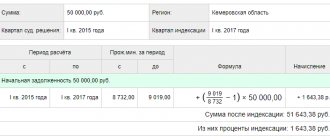Lifetime maintenance agreement with dependents. General provisions
In accordance with Art. 601 of the Civil Code of the Russian Federation, under this agreement, the citizen - recipient of the rent transfers real estate into ownership to the other party - the payer of the rent, and the payer of the rent undertakes to provide lifelong maintenance for this citizen and (or) the person indicated by him.
A lifelong maintenance agreement with a dependent is a type of annuity contract with the only peculiarity that instead of directly paying rent, the annuity payer undertakes to provide lifelong maintenance for a citizen with a dependent, that is, to care for the citizen, ensure his maintenance, buy food, clothing, medicines, pay medical service. The provided maintenance with a dependent may include provision of other needs of the citizen, for example, the contract may provide for payment by the payer of the rent for funeral services. Such an agreement may also provide for the payment of a lump sum of money at the beginning and then certain amounts of money every month until death, as well as payment of utilities, interest on late payments, etc. (clause 1 of article 585, clause 1 of article 602, article 603 of the Civil Code of the Russian Federation).
The validity period of this right is until the end of the life of the annuity recipient (Article 605 of the Civil Code of the Russian Federation).
The rent payer can be either an individual or a legal entity. The recipient of an annuity under a lifelong maintenance agreement with a dependent can only be an individual.
In accordance with Art. 34 of the Housing Code of the Russian Federation, the content of this right is the right to use residential premises.
The fundamental feature of a life annuity agreement is the establishment of annuity payments for the life of the recipient. Economically, the annuity payer receives a loan (the recipient's property), and the total payment, including repayment of the principal debt (rent), depends on how long the other party to the contract will live.
A lifelong maintenance agreement with dependents is subject to notarization and state registration (Clause 1, Article 158, Article 584 of the Civil Code of the Russian Federation).
Article 411 of the Civil Code of the Russian Federation contains an important provision that claims related to lifelong maintenance with a dependent are not subject to offset. Therefore, the annuity payer does not have the right to offset against the annuity payable to its recipient any debts of the latter to him (for example, under a loan agreement).
From judicial practice it follows that a disabled citizen - a recipient of an annuity under a lifelong maintenance agreement with a dependent, concluded with the testator - the annuity payer, does not inherit by law as a dependent of the testator (clause 31 of the Resolution of the Plenum of the Supreme Court of the Russian Federation dated May 29, 2012 N 9 “On judicial practice in inheritance cases").
The burden of bearing the costs of paying for housing and communal services
In our opinion, according to the general rule established by Article 602 of the Civil Code of the Russian Federation, all costs for housing and communal services, including costs for major repairs of housing transferred for the payment of monthly maintenance with a dependent, are borne by the rent payer.
In addition, after receiving a certificate of ownership of residential premises from the Federal Registration Service, the personal account for payment of housing and communal services is subject to re-registration by the cash settlement organization in his name as the new owner of the housing. This position is based on the fact that, in accordance with Article 153 of the Housing Code of the Russian Federation, the obligation to pay for housing and communal services in full lies with the owner of the residential premises from the moment ownership arises.
I will give one example from judicial practice, where a dispute arose regarding the failure to fulfill a life annuity agreement (applicable to a life annuity agreement with dependents on the basis of paragraph 2 of Article 601 of the Civil Code of the Russian Federation).
The plaintiff filed a lawsuit to terminate the lifelong annuity agreement and recognize her ownership of the apartment, indicating that she entered into an agreement with the defendant, in accordance with the terms of which she agreed to pay her a lifelong annuity in the amount of 2,000 rubles monthly, pay expenses, exceeding the mandatory monthly payments for housing and communal services related to the maintenance and repair of the house, including major ones.
However, the defendant, while partially paying the rent, avoids fulfilling other obligations under the contract, namely: she does not make cosmetic repairs to the apartment, does not visit her in medical institutions during her hospitalization, and does not pay for housing and communal services.
The decision of the district court rejected the claims in full. In the cassation appeal filed by the plaintiff, she asked to cancel the court decision, considering it to be incorrect.
The panel of judges did not find any grounds for overturning the decision of the court of first instance and indicated that the plaintiff had not proven the circumstances of the failure to receive from the defendant the content that she was counting on when concluding the agreement, but the grounds for which, at the request of the annuitant, the life annuity agreement can be terminated in court the procedure provided for in Article 599 of the Civil Code of the Russian Federation.
Significant violations of the terms of the contract, using the analogy of the law, based on the provisions of Article 593 of the Civil Code of the Russian Federation, include cases when the annuity payer is overdue for payment by more than one year, unless otherwise provided by the contract; the rent payer violated its obligations to ensure payment of rent; the rent payer has been declared insolvent, or other circumstances have arisen that clearly indicate that the rent will not be paid to him in the amount and within the time limits established by the agreement; real estate transferred for the payment of rent came into common ownership or was divided between several persons, as well as other cases provided for by the contract.
At the same time, the court rightfully noted that the plaintiff’s arguments about the defendant’s failure to fulfill the obligation to carry out cosmetic repairs in the apartment cannot serve as a basis for termination of the contract, since they do not indicate a significant violation by the defendant of its terms, since according to clause 1.7 of the contract, its subject includes the obligation of the rent payer in exchange for the property received, pay the recipient a monthly annuity in the form of a sum of money, as well as provide care for the annuity recipient if his health requires it.
The fact that the plaintiff paid for housing and communal services also does not indicate a significant violation by the defendant of the terms of the contract, since payment for housing and communal services does not relate to the obligations of the rent payer to the rent recipient, but is the responsibility of the defendant as the owner of the residential premises, and for the failure of the owner of the premises to fulfill his obligations under The law provides for other liability for payment of housing and communal services (cassation ruling of the St. Petersburg City Court dated September 29, 2011 No. 33-14808/11).
Restrictions on the disposal of residential premises transferred to the rent payer
The Civil Code of the Russian Federation indicates restrictions on the disposal of property transferred to the annuity payer to ensure lifelong maintenance. As follows from Art. 604 of the Civil Code of the Russian Federation, the rent payer has the right to alienate, pledge or otherwise encumber such residential premises only with the prior consent of the rent recipient (written and notarized).
In the event of alienation of the encumbered property by the rent payer, his obligations under the rent contract are transferred to the acquirer of the property.
A third party who becomes the owner of a property encumbered with rent automatically becomes a rent payer and cannot free himself from the encumbrance, even if he was not aware of its existence.
A lifelong maintenance agreement with a dependent, unlike other types of annuity, assumes a closer connection between the annuity payer and its recipient. If in other types of annuity the relations of the parties are limited to the periodic transfer (transfer) of funds or other provision specified in the contract in the absence, as a rule, of personal contacts, then here the parties to the contract usually constantly interact with each other. By entrusting the annuity payer with the responsibility to provide for the dependent's needs in housing, food, clothing, etc., the dependent, as a rule, knows him well and trusts him. Replacing the annuity payer with another person may be completely unacceptable for the dependent. Therefore, any actions of the rent payer that may ultimately entail the transfer of ownership of the property to another person must be in accordance with paragraph. 1 tbsp. 604 of the Civil Code of the Russian Federation are pre-agreed with the annuity recipient.
If the rent payer makes a transaction for the alienation of real estate without the consent of the rent recipient, the latter has the right to demand that all transactions made by the payer be declared invalid in court on the basis of Art. 173.1 of the Civil Code of the Russian Federation (“Invalidity of a transaction made without the consent of a third party, a body of a legal entity or a state body or local government body required by law”).
Grounds for termination of lifelong maintenance with a dependent
The Civil Code of the Russian Federation includes both the death of the annuity recipient and a significant violation by the annuity payer of its obligations as grounds for termination of lifelong dependent support.
If the rent payer does not fulfill his obligations to the annuity recipient, the latter has the right to demand termination of the contract of lifelong maintenance with a dependent and demand from the rent payer either the return to him of the residential premises transferred to ensure lifelong maintenance, or the payment of the redemption price for this premises to him. The redemption price is determined without taking into account the expenses of the rent payer for the maintenance of the rent recipient.
According to paragraph 2 of Art. 605 of the Civil Code of the Russian Federation, the right of the annuity recipient to unilaterally terminate the lifelong maintenance agreement with dependents arises when significantly violates its obligations. The nature of the violations - whether they can be considered significant or not - is determined by the specific circumstances of the relationship between the parties to the lifelong dependency agreement. In particular, repeated, systematic cases of failure by the annuity payer to fulfill their obligations to provide support for the annuity recipient become significant.
In order to avoid negative consequences and losses, the contract must clearly stipulate all obligations for the maintenance of the rent payer (both material and intangible). And to confirm their fulfillment, it is necessary to collect, record and store all payment and other documents, from which it follows that it was the rent payer who fulfilled this or that obligation, or it was fulfilled by a third party, but at the expense of the rent payer.
Receipts for the purchase of products, prescriptions and receipts for medicines, contracts and payment documents confirming the involvement of third parties by the rent payer to fulfill the agreement, receipts for payment of utilities signed by the rent payer, as well as an extract from the corresponding bank account if payment was made by bank transfer , - all this will serve as evidence of the proper fulfillment of obligations by the rent payer if the case goes to court.
§ 3. Lifetime annuity
Article 596. Recipient of life annuity
1. Lifetime annuity can be established for the life of the citizen transferring property for payment of annuity, or for the life of another citizen specified by him.
2. It is allowed to establish a life annuity in favor of several citizens, whose shares in the right to receive annuity are considered equal, unless otherwise provided by the life annuity agreement.
In the event of the death of one of the annuity recipients, his share in the right to receive annuity passes to the surviving annuity recipients, unless otherwise provided by the life annuity agreement, and in the event of the death of the last annuity recipient, the obligation to pay the annuity is terminated.
3. An agreement establishing a life annuity in favor of a citizen who has died at the time of conclusion of the agreement is void.
Article 597. Amount of life annuity
1. Lifetime annuity is defined in the contract as a sum of money periodically paid to the annuity recipient during his life.
2. The amount of life annuity established by a life annuity agreement providing for the alienation of property free of charge, per month, must be no less than the minimum subsistence level per capita established in accordance with the law in the relevant constituent entity of the Russian Federation at the location of the property that is the subject of the life annuity agreement , and in the absence of the specified value in the corresponding subject of the Russian Federation, not less than the minimum subsistence level per capita established in accordance with the law for the Russian Federation as a whole.
The amount of the life annuity established by the life annuity agreement at the level of the per capita subsistence level specified in paragraph one of this paragraph is subject to increase taking into account the increase in the corresponding per capita subsistence level.
(Clause 2 as amended by Federal Law dated November 30, 2011 No. 363-FZ)
Article 598. Terms of payment of life annuity
Unless otherwise provided in the life annuity agreement, the life annuity is paid at the end of each calendar month.
Article 599. Termination of a life annuity contract at the request of the annuity recipient
1. In the event of a significant violation of the life annuity agreement by the annuity payer, the annuity recipient has the right to demand from the annuity payer the redemption of the annuity on the terms provided for in Article 594 of this Code, or termination of the agreement and compensation for losses.
2. If an apartment, residential building or other property is alienated free of charge for the payment of a lifelong annuity, the annuity recipient has the right, in the event of a significant violation of the contract by the annuity payer, to demand the return of this property with its value offset against the redemption price of the annuity.
Article 600. Risk of accidental destruction of property transferred for payment of life annuity
Accidental destruction or accidental damage to property transferred for the payment of a life annuity does not relieve the annuity payer from the obligation to pay it on the terms provided for in the life annuity agreement.
Real estate transferred to the rent payer is not included in the inheritance of the rent recipient
In accordance with Art. 1112 of the Civil Code of the Russian Federation, the inheritance includes things and other property that belonged to the testator on the day the inheritance was opened, including property rights and obligations. Under a lifelong maintenance agreement with a dependent, real estate is transferred into the ownership of the annuity payer, that is, the transfer of property from the annuity recipient (testator) to the annuity payer is carried out during the life of the testator. Consequently, on the day the inheritance is opened, the disputed property does not belong to the testator and is not included in the inheritance mass (unless the agreement is terminated in the manner prescribed by law during the life of the testator (rent recipient)).
Termination of an agreement
An annuity agreement with lifelong maintenance can be terminated by both the annuitant and the annuity payer. An application for termination can be filed with the court only after first receiving a refusal from the dissenting party or if such refusal is not received within the period specified in the proposal for termination or agreement or after 30 days.
Termination of a life annuity agreement or lifelong maintenance with dependents through the court is possible at the request of the relatives of the annuity recipient. A prosecutor may act on behalf of the annuity recipient.
To avoid problems, you need to make sure that the annuity recipient is fully capable before concluding the contract.






